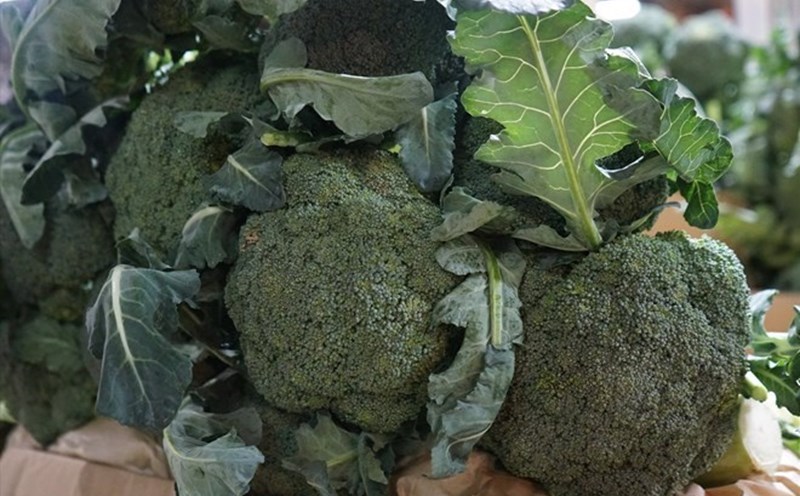Broccoli has long been considered a "superfood" because it is rich in vitamins, antioxidants and fiber. However, eating too much of this vegetable can cause some health problems. According to Anshika Srivastava, a nutritionist, working at the Dt nutrition clinic. Anshika's Nutri Hub (India), some people may experience negative reactions if they consume broccoli in large quantities every day, especially when eaten raw or cooked undercooked.
Here are 5 harmful effects you need to pay attention to:
Effects on the thyroid
Broccoli contains goitrogen compounds that can interfere with the thyroid's ability to absorb iodine. This can lead to hyperthyroidism (neck goiter) or thyroid dysfunction. This vegetable also contains thiocyanate, which can increase the risk of hyperthyroidism, causing fatigue, weight gain, hair loss and swollen face, says Anshika Srivastava.
A study published in the journal Cancer Causes Control also confirmed that consuming too much cruciferous vegetables such as broccoli can affect thyroid function.
Causes bloating and indigestion
Broccoli belongs to the cruciferous vegetable group, easy to breathe during digestion. This makes many people feel bloated and flat, especially when eating raw or in large quantities. The National Institute of Diabetes, Digestive and Nephrological Diseases (NIDDK) has listed broccoli in the list of vegetables that can easily cause bloating.
Stomach irritation if eating too much fiber
The fiber in broccoli helps support digestion, but if eaten too much, the body may not produce enough enzymes to process. As a result, you may experience digestive disorders, abdominal pain or diarrhea. High fiber intake will cause intestinal irritation if the body does not adapt in time, says expert Srivastava.
Increased risk of stroke if cooking incorrectly
If broccoli is not cooked thoroughly, the amount of isoflavones in vegetables can increase the risk of local anemia stroke, a condition that occurs when the blood flow to the brain is blocked by blood clots. Women are at higher risk when consuming undercooked broccoli regularly.
Interacting with anticoagulants
Broccoli is rich in vitamin K - a substance that can affect the effectiveness of blood thinners (such as warfarin). According to Wexner Medical Center - Ohio State University (Ohio State University Wexner Medical Center), people who are taking anticoagulants need to strictly control their vitamin K intake in their diet.
So how much should you eat?
You should only eat about 90 - 180 grams of cooked broccoli per day. appearance is the best way to prepare it because it helps preserve nutrients while still reducing side effects such as indigestion or bloating. Avoid eating raw or eating too much for a long time.











